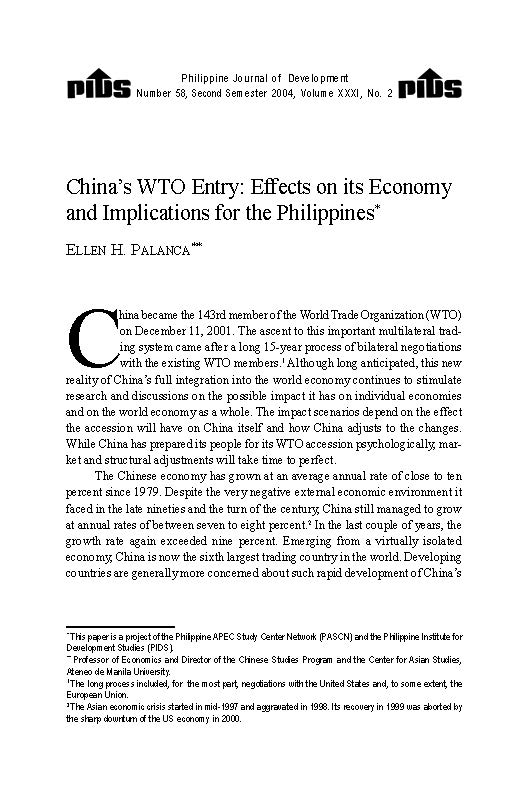Abstract
This issue presents a diverse set of studies on trade, labor, infrastructure, and language policy, offering insights into their implications for national development. One article examines China’s accession to the World Trade Organization and its impact on the Philippines, analyzing trade structures and China’s commitments. It highlights strategies such as niche market identification and brand building to remain competitive in the evolving global economy. Another study explores the long-term economic consequences of child labor in the Philippines. It delves into the difficult trade-offs poor families face between education and survival, emphasizing how child labor affects future workforce productivity and economic growth. The challenges of transport infrastructure investment and management are also assessed, particularly in light of decentralization. The author argues that while roads are traditionally seen as public goods, private sector participation may be viable if a sustainable revenue model is in place. Finally, an article explores the role of English as a common language for trade, finance, and technology in APEC countries. It examines efforts to improve English fluency in East Asia and its significance in enhancing regional cooperation and economic competitiveness.
Articles
SHARE
